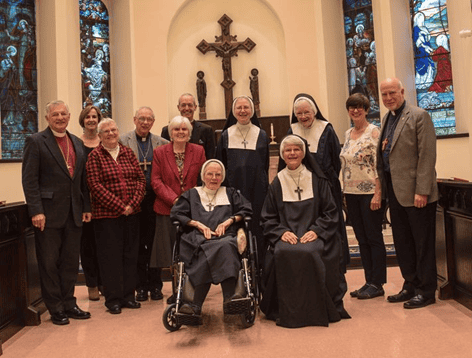Connecticut Proposes ‘Medical Aid in Dying’ Bill to Legalize Euthanasia

The Connecticut General Assembly is currently debating whether to enact a “Medical Aid in Dying” (MAID) bill legalizing euthanasia for adults.
The bill (SB 1076), titled “An Act Concerning Aid in Dying for Terminally Ill Patients,” would permit a medical physician to prescribe “medication” to a terminally ill patient, which can then be administered by the patient themselves to bring about their own death, i.e., death by suicide.
SB 1076 would, effective October 1, 2023, permit patients to receive MAID. The patients must:
- Be an adult.
- Be competent.
- Be a resident of Connecticut.
- Have a terminal illness as determined by a patient’s attending physician and a consulting physician.
- Have attended counseling.
- Have voluntarily expressed a desire to receive aid in dying.
Similar bills to legalize euthanasia have been introduced a dozen times in Connecticut since 1995, and each time the bills have failed. But given the push around the country, and much of the Western world, to legalize and destigmatize human euthanasia, it’s quite possible the bill may pass this time around.
The Family Institute of Connecticut, a Focus-allied family policy council, is lobbying hard against SB 1076. The group urged citizens of Connecticut to submit written testimony to the Senate Public Health Committee, which held a hearing on the bill on February 27, 2023.
Peter Wolfgang, President of the Family Institute of Connecticut, gave testimony against SB 1076 before the committee.
“Our hearts go out to those being used as props for Big Suicide. This is not about pain, which can be managed. This is about taking advantage of vulnerable people so as to line the pockets of an organization that aspires to be the Planned Parenthood of assisted suicide,” Wolfgang said. “It is ultimately about population control, the poor at the expense of the rich.”
The Daily Citizen has reported extensively about the myriad of problems with legalized assisted suicide.
One such problem is that legalized assisted suicide disproportionally targets the most vulnerable individuals.
At a press conference opposing SB 1076, Dr. Diane Meier, a specialist in geriatrics and palliative medicine at Mount Sinai, said safeguards against abuse of MAID are “unrealistic and demonstrably ineffective.”
There are “very real risks of public policy normalizing state-sanctioned suicide,” Dr. Meier said. “Such a change in policy puts tens of thousands of my fellow citizens, particularly the poor, the disabled, the chronically ill – the highest need and highest cost people among us – at risk of being encouraged to die because our society will not pay for what people need in order to live.”
Additionally, Cathy Ludlum, a member of Second Thoughts Connecticut, a disability-rights organization, pointed out that legalizing medically sanctioned suicide fundamentally reverses the role of the doctor-patient relationship. Rather than a relationship of healing, it becomes one of utilitarianism and death.
Ludlum said, “It is clear to those of us who already have to fight for medical care that offering poison as a treatment option will have far-reaching consequences.”
Legalized assisted suicide is spreading across the country, though 40 states currently prohibit assisted suicide. Yet assisted suicide is currently legal in eleven jurisdictions, including California, Colorado, District of Columbia, Hawaii, Montana, Maine, New Jersey, New Mexico, Oregon, Vermont, and Washington.

Photo Credit: Americans United for Life
Let us work, pray and hope that Connecticut does not soon become the twelfth.
To learn more about the Family Institute of Connecticut and to get involved in their efforts, you can visit their website here.
Focus on the Family’s Counseling Department offers help from licensed or pastoral counselors. To request a conversation with Focus on the Family’s Counseling Department, call 1-855-771-HELP (4357) weekdays from 6:00 a.m. to 8:00 p.m. (Mountain Time), or complete our Counseling Consultation Request Form. Please be prepared to leave your contact information for a counselor to return a call to you as soon as possible. The consultation is available at no cost to you due to generous donor support and will be with one of our licensed or pastoral counseling specialists.
Related articles and resources:
Counseling Consultation & Referrals
Tragic Case in Canada Highlights Problems with Permissive Euthanasia Laws
New Mexico Doctors Sue State Over Law Requiring Them To Facilitate Assisted Suicides
Canada Will Legalize Euthanasia for Those Struggling With Mental Illness
Photo from Shutterstock.
ABOUT THE AUTHOR
Zachary Mettler is a writer/analyst for the Daily Citizen at Focus on the Family. In his role, he writes about current political issues, U.S. history, political philosophy, and culture. Mettler earned his Bachelor’s degree from William Jessup University and is an alumnus of the Young Leaders Program at The Heritage Foundation. In addition to the Daily Citizen, his written pieces have appeared in the Daily Wire, the Washington Times, the Washington Examiner, Newsweek, Townhall, the Daily Signal, the Christian Post, Charisma News and other outlets.
Related Posts

New York Ends Fight to Force Nuns to Pay for Abortions
January 27, 2026



